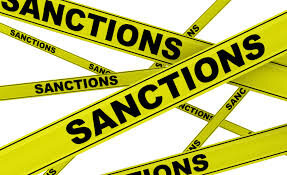G77, China demand end to U.S. sanctions amid coronavirus pandemic

TEHRAN- The Group of 77 (G-77) and China, in a statement on Friday, called for an end to unilateral sanctions against developing countries amid the coronavirus crisis, warning the sanctions could slow down efforts to tackle the pandemic.
The Group of 77 at the United Nations is a coalition of 135 developing countries, designed to promote its members' collective economic interests and create an enhanced joint negotiating capacity in the United Nations.
The statement implicitly aimed at the United States, which has imposed tough sanctions against Iran and Venezuela.
The coalition of developing nations was quoted by the AFP as saying that the application of "unilateral coercive economic measures will have a negative impact on the capacity of states to respond efficiently."
It warned that such measures would affect targeted countries ''acquisition of medical equipment and supplies" to adequately treat their populations in the face of this pandemic."
"We, therefore, call upon the international community to adopt urgent and effective measures to eliminate the use of unilateral coercive economic measures against developing countries," the statement said.
The Group of 77 was established on 15 June 1964 by seventy-seven developing countries.
On Monday, Iran’s Foreign Minister Mohammad Javad Zarif said U.S. sanctions have made it “impossible” for Iranians to have access to essential drugs during the COVID-19 pandemic, warning that the bans were leading to a “humanitarian catastrophe”.
“The illegal blockade of Iran’s financial resources by the sweeping U.S. sanctions makes access to drugs and medical equipment impossible,” Zarif wrote in an op-ed titled “Fight the Virus, Not Us” published in Russian business newspaper Kommersant.
“This is leading to a humanitarian catastrophe,” the top diplomat warned, noting that Washington’s campaign of ‘maximum pressure’ on Tehran undermines the country’s efforts in treating COVID-19 patients and slowing down the spread of the deadly virus.
Zarif stressed that the threat of U.S. sanctions forces banks to avoid dealing with Iran and prompts European medical companies to refuse to sell vital equipment to Tehran.
“The world community must come to its senses and help Iran against economic, medical and drug terrorism,” Zarif wrote.
In his op-ed, Zarif argued that Tehran has a “strong” healthcare system, but severe sanctions by Washington are draining its finances. “The American policy of maximum pressure hampers Iranian exports, while Iran has fewer and fewer sources of investment.” .
The United States has refused to lift sanctions on Iran and even tightened them several times in recent weeks, making it almost impossible for the Islamic Republic to access life-saving medications and medical equipment.
As of Saturday, April 4, about 56,000 Iranian had tested positive for the coronavirus and about 35,00 had lost their lives.
The United States has refused to lift sanctions on Iran and even tightened them several times in recent weeks, hampering Iran's efforts to contain the virus as Washington restricts Tehran's access to life-saving medications and medical equipment.
Meanwhile, the UN General Assembly on Thursday approved a resolution for the first time on the coronavirus pandemic, calling for “multilateralism” in the fight against the virus, but failed to condemn unilateral U.S. sanctions against countries.
MJ/PA
Leave a Comment